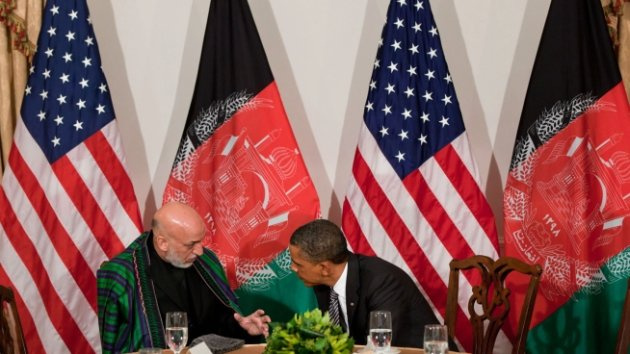Doubts About and the Dangers of a Treaty

In reality, one part of this security agreement which had become a sensitive issue in Afghan public opinion in past months has now been eliminated and discussion about it has been postponed to a later date. Nevertheless, the vague point in what has been published is that the issue of judicial immunity for American citizens, or capitulation to the US, has not been raised and no information about this issue has been made public. And any information that has been given about this topic does not provide any clear details. One of the reasons for this might be the fact that Afghan public opinion is highly sensitive about the issue of judicial immunity for American citizens. Numerous incidents caused by American soldiers that have led to the deaths of many women, children, and civilians have added to this sensitivity. Based on available information, the issue of immunity for American citizens (on the basis of US law) has been an integral part of any long-term strategic agreement the United States has signed with different countries.
In the past 18 months, during which this agreement has been mentioned in the media, the Afghan government has given no clear information about the above-mentioned issue and even now that the treaty has been signed, the different aspects of this issue have yet to be discussed. The Afghan government has tried in recent years to provide security for Afghanistan by relying on foreign powers, but past experiences for Afghanistan, especially at the time of the Soviet occupation, have shown that foreign forces have never been able to play a serious role in providing security for Afghanistan. The Afghan government is currently following the same path as before. However, news of some disagreements in the Afghan parliament with regard to this agreement has also been heard. In whichever manner this agreement manages to pass through the Afghan parliament, based on historical, geographical, social, and political realities in Afghanistan, these types of treaties are not able to help in increasing security in this country, even if public opinion accepts them.
In the past ten years, numerous countries have made efforts to establish security in Afghanistan using their military forces, but the presence of these forces has resulted in the current situation in Afghanistan, namely, the imposition of heavy costs on the people of Afghanistan and the region.
To sum up, we can say that due to the sensitivity of public opinion and Afghanistan's neighboring countries, not only do these types of agreements not help with Afghanistan's problems, but they actually complicate the country's situation more. Understanding and convergence between the people and understanding between neighboring countries is the only possible way to end the security crisis in Afghanistan.

